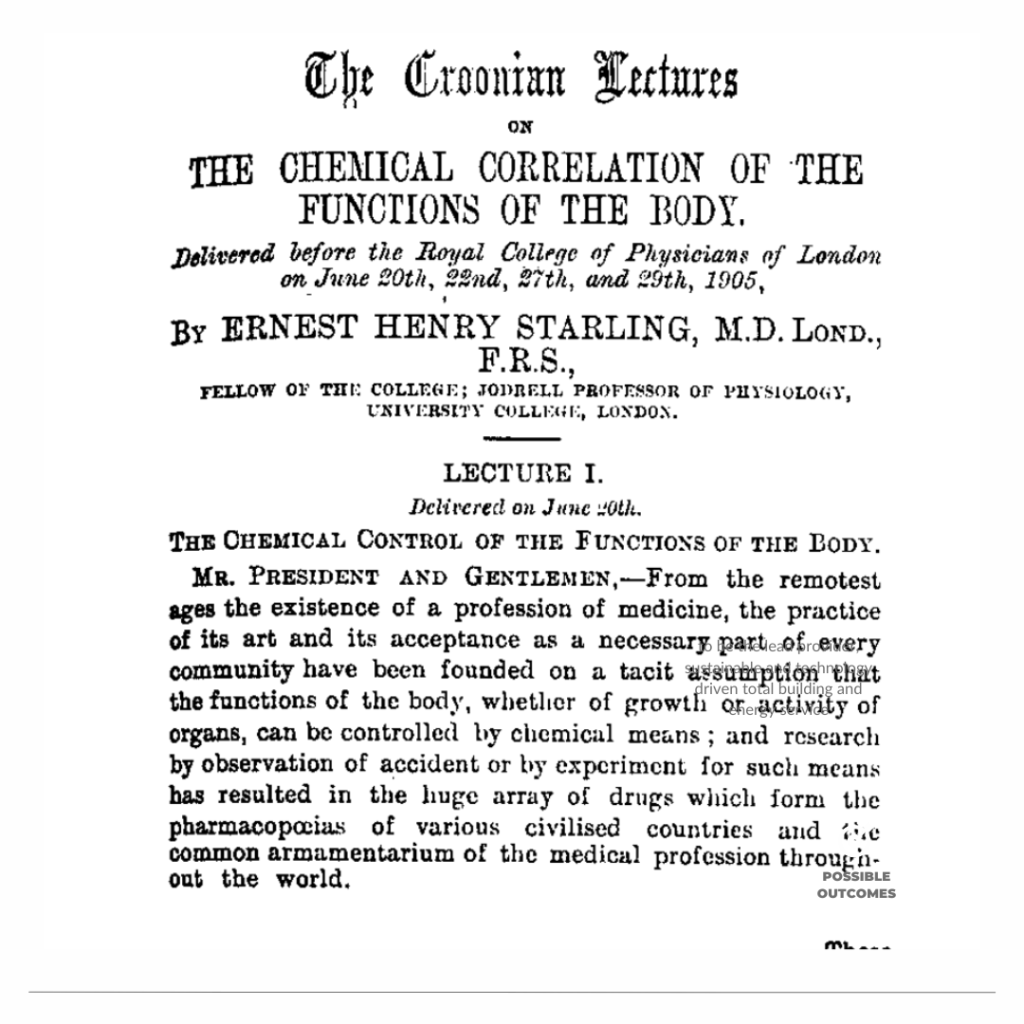Ernest Starling, a renowned physiologist and pioneering endocrinologist, was the first to coin the term “hormone.” His groundbreaking work and insights have profoundly impacted the field of endocrinology and our understanding of the human body. In this blog post, we will explore the life and work of this remarkable scientist.
Ernest Starling was born in 1866 in London, England. He attended Guy’s Hospital Medical School, where he displayed an early interest in physiology. He went on to work with several prominent scientists, such as Sir Michael Foster and J.N. Langley, before being appointed as a professor of physiology at University College London in 1899.

In 1904, Starling delivered a Croonian lecture to the Royal Society, followed by another set of Croonian Lectures for the Royal College of Physicians in 1905. During these lectures, Starling first introduced the word “hormone.” According to Starling’s first lecture, titled “The Chemical Control of the Functions of the Body,” chemical messengers or “hormones” are substances produced by one organ and transported through the bloodstream to affect the function of another organ. Although the term “hormone” was only used once in the first lecture, Starling revisited it in the fourth lecture, where he used it 17 times. Starling’s work on hormones would lay the foundation for endocrinology and inspire future scientists to study the various ways hormones regulate the human body.
The word “hormone” originated from a dinner conversation between Starling and a distinguished biologist, William Hardy, at Caius College, Cambridge. They were seeking a term describing the agents released into the bloodstream that stimulated activity in different body parts. W.T. Vesey, a classical scholar, provided them with the Greek verb for “excite” or “arouse”, and thus, the term “hormone” was born.

Ernest Starling’s work has had a lasting impact on endocrinology. His discovery of the hormone concept has led to a greater understanding of how the human body communicates and regulates itself. Today, we continue to build on Starling’s pioneering work, as hormones remain a vital area of research in modern medicine.
In conclusion, Ernest Starling’s contribution to endocrinology and our understanding of hormones cannot be overstated. His discovery of the term “hormone” has left an indelible mark on the scientific community and shaped how we approach studying the human body. As we celebrate the life and work of this remarkable scientist, let us remember the impact of his discoveries on our understanding of the complex world of endocrinology.
